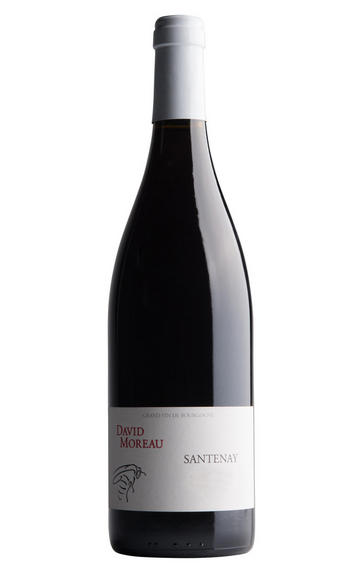
2017 Santenay, Cuvée "S", David Moreau, Burgundy
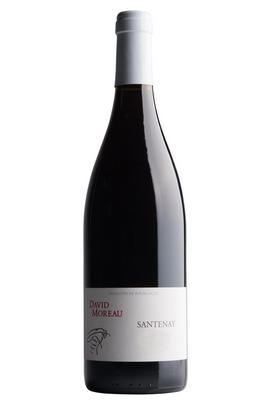
Critics reviews
William Kelley - 31/07/2019
About this WINE
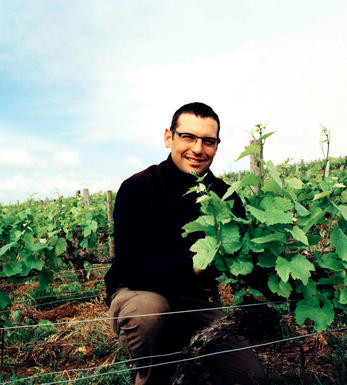
David Moreau
David Moreau has taken over part of his octogenerian grandfather’s wine domaine in Santenay in Côte de Beaune, beginning with the 2009 vintage. Prior to that David has worked with Olivier Lamy and Domaine de la Romanée Conti, as well as doing a stage in New Zealand at Neudorf.
David is beginning with 5 of the family’s 9 hectares and suffice to say that significant changes in both viticulture and vinification have been made compared to the ancien regime. The vineyards were almost all planted in the 1960s, so David has old vines to work with. They are mostly pruned by cordon royat to minimise vigour, and the land is either ploughed or left with grass depending on the circumstance of a given plot.
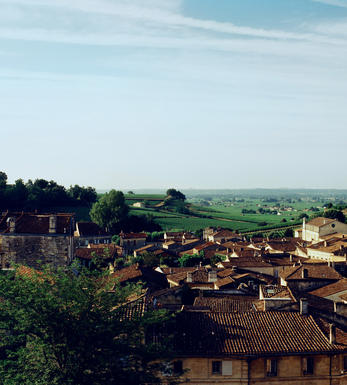
Santenay
Santenay, situated in the southern part of the Côte de Beaune in Burgundy, France, is known for producing some of the world’s most prestigious and sought-after wines. The terroir of Santenay is diverse, featuring limestone and clay soils, which play a crucial role in shaping the unique character and flavours of the wines.
The region’s winemaking heritage dates back centuries, with a deep-rooted tradition of crafting exceptional Pinot Noir and Chardonnay wines. The village’s vineyards benefit from a favourable microclimate that promotes grape ripening while retaining freshness and balance in the wines.
The red wines often exhibit a harmonious blend of red fruit flavours, such as cherry and raspberry, and subtle earthy and spice undertones. The tannins in these wines are typically refined and well-integrated, contributing to their elegance and age-worthiness.
On the other hand, Santenay’s white wines are characterised by their bright acidity, offering refreshing citrus and orchard fruit notes with a hint of minerality.
Winemakers in Santenay take pride in following a traditional and artisanal approach to winemaking, emphasising the importance of respecting the land and expressing the unique terroir in each bottle. They aim to capture the essence of the vineyards and the nuances of the grape varieties, resulting in authentic wines that reflect their origin.
Santenay’s picturesque landscapes and dedication to producing high-quality wines attract wine enthusiasts and connoisseurs worldwide. It is a region where history, tradition, and innovation intersect, making it a compelling destination for anyone seeking to explore Burgundy’s exceptional wines and winemaking culture.
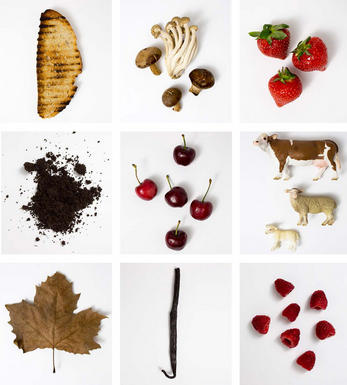
Pinot Noir
Pinot Noir is probably the most frustrating, and at times infuriating, wine grape in the world. However when it is successful, it can produce some of the most sublime wines known to man. This thin-skinned grape which grows in small, tight bunches performs well on well-drained, deepish limestone based subsoils as are found on Burgundy's Côte d'Or.
Pinot Noir is more susceptible than other varieties to over cropping - concentration and varietal character disappear rapidly if yields are excessive and yields as little as 25hl/ha are the norm for some climats of the Côte d`Or.
Because of the thinness of the skins, Pinot Noir wines are lighter in colour, body and tannins. However the best wines have grip, complexity and an intensity of fruit seldom found in wine from other grapes. Young Pinot Noir can smell almost sweet, redolent with freshly crushed raspberries, cherries and redcurrants. When mature, the best wines develop a sensuous, silky mouth feel with the fruit flavours deepening and gamey "sous-bois" nuances emerging.
The best examples are still found in Burgundy, although Pinot Noir`s key role in Champagne should not be forgotten. It is grown throughout the world with notable success in the Carneros and Russian River Valley districts of California, and the Martinborough and Central Otago regions of New Zealand.


Buying options
Add to wishlist
Description
Half of the vines for this cuvée suffer from court noué (fanleaf virus), which reduces the yield and causes millerandage; small berries which make concentrated wines. The nose offers subtle spice notes while the palate gives richness and density with some darker fruit flavours and rocky grip. Drink 2020-2024
David began picking on 7th September for his Pinot Noir, pointing out that while this was the same date as in 2015, the two vintages have contrasting profiles. David used the word digeste to describe the 2017s, suggesting these are wines which will have you reaching for the next glass. The character of the vintage is one of freshness, purity, bright red fruit and floral notes, a combination which marries perfectly with Davids precise and confident winemaking style.
wine at a glance
Delivery and quality guarantee